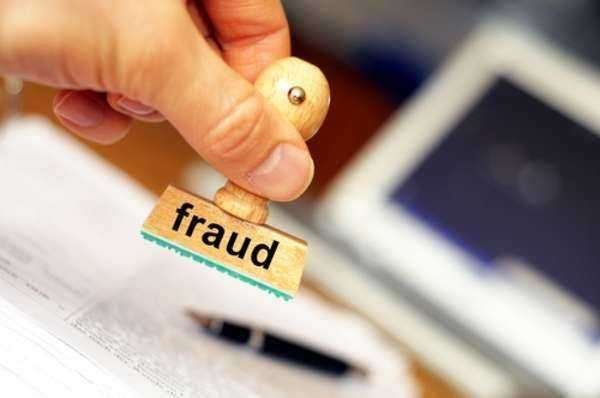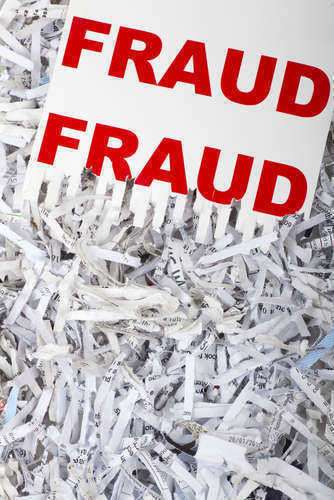
Insurance fraud is the act of illegitimately seeking payment from an insurance provider for a false claim on an insurance policy. It covers a wide spectrum of different possible acts and crimes, as each instance of insurance fraud could be slightly different from another. The many different types of insurance available to consumers ensure this, if nothing else. Insurance fraud has changed as time has passed, taking on different
forms, with often times more complex strategies than the very basic lies that served the function in the past.
But with the advancement of insurance fraud’s own methods, investigations into insurance fraud have similarly become more complex, more focused, and more capable of rooting out the worst offenders. Many smaller instances of insurance fraud may pass unexamined, if only because there is such a tremendous quantity of insurance claims submitted every day, that for an insurance company to examine them all would take too much time. But the serious offenses of insurance fraud will often be caught out.
Insurance has been in existence, in one form or another, for centuries, and insurance fraud has been around for just as long. The option to take advantage of a system such as insurance for the sake of personal gain is often too tempting for fraudsters to ignore, so they perpetrate insurance fraud to earn
money from the system which should be in existence to protect policy holders.
All forms of insurance fraud involve deception, and most often revolve around convincing insurance companies that the claim is actually legitimate, or at least is not worth investigating further. Insurance companies have to play a game of risk/reward in relation to fraud, a game in which they attempt to determine whether or not it is more worthwhile to let the claim go than it is to actually to investigate it and determine whether or not it is fraudulent.
But regardless of whether or not an insurance company decides to pursue a given individual case of insurance fraud, the
act itself is perpetrated all throughout the world, and continues to be a major hindrance to the overall functioning of the insurance system. To find out more about insurance fraud’s history and its modern form, follow the link.
The methods for perpetrating insurance fraud will vary between each and every type of insurance. To perpetrate life insurance fraud, for example, will take an entirely different type of deception than it would take to perpetrate car
accident insurance fraud, or health care insurance fraud. Even the motivations between each given form of fraud might vary, as life insurance fraud will be almost unquestionably performed for the sake of money, while health care insurance fraud might be performed by a doctor for the sake of his patient’s well-being.
Navigating the different possible methods for perpetrating insurance fraud is the objective of fraud investigators, who must somehow cut through the often elaborate deceptions of insurance fraud in order to find the truth of the matter. Sometimes, investigators will discover that what might seem to be an elaborate web of insurance fraud is actually legitimate, but other times, the a fraud investigation will cut straight through the lies and reach the kernel of truth underlying all. Understanding the methods of perpetrating insurance fraud, then, is an important component of preventing it. For more information on the methods behind insurance fraud, click the link.
Hard fraud is a kind of insurance fraud involving significantly more blatant activity than the other form of insurance fraud, soft fraud. Hard fraud most often involves a plan of some kind, with multiple perpetrators even, creating situations in which they might collect insurance money from insurance companies without suffering any kind of penalty. Those who would perpetrate hard fraud are most often those who would more readily perpetrate crime in general, as hard fraud comes significantly closer to pre-planned crime in its form.
Examples of hard fraud abound, from planning on a way to force a victim into a car accident, in order to collect insurance money from the victim’s insurance provider, to staging accidents in order to fake injuries, so as to collect insurance money from those claims. Most hard fraud involves such a pre-planned scheme of some form or another, and also involves close to outright deception in perpetrating the fraud; hard fraud attempts to obtain insurance money are not based on actual, legitimate claims, as they are entirely invented and fabricated through the hard fraud scheme. For more about hard fraud and its characteristics, follow the link.
Soft fraud is the other kind of insurance fraud, next to hard fraud. Where hard fraud refers to premeditated, near
criminal schemes of deception, soft fraud is most often committed as a crime of opportunity, with no premeditation. Soft fraud is also a type of fraud based on legitimate claims. For example, an instance of soft fraud would be when someone gets into a car accident, and then files a claim for more money than the car repairs actually cost. There was a legitimate claim involved, but the amount of the claim was exaggerated by the fraudster in this case.
Many people do not see this particular kind of fraud to be as terrible as hard fraud, instead seeing soft fraud as “little white lies.” Nonetheless, however, soft fraud is fraud, still, and is just as much of a crime, though it might not have some of the criminal charges involved in perpetrating hard fraud associated with it. Soft fraud is significantly more common than hard fraud, seeing as soft fraud does not require the kind of premeditation and intent to commit a crime that hard fraud does.
Soft fraud cases are also more often settled out of
court. But soft fraud in general poses a threat to any health care consumer, because the prevalence of soft fraud ensures that insurance companies will charge higher premiums, to recoup their losses from soft fraud cases. For more information about soft fraud, how it is perpetrated, and what its effects are, click the link.
Insurance fraud penalties are determined on a
state by state basis. There are no definitive federal penalties for insurance fraud, but there are some characteristics that do carry between the states. In general, hard fraud will always be given higher penalties than will be soft fraud, because hard fraud involves significantly more premeditation and fraudulent deception.
Hard fraud is also most likely to incur criminal penalties above and beyond any penalties for insurance fraud. Penalties for insurance fraud can include fines, ranging from $1,200 to $50,000 depending on the state, and jail time, ranging from 5 to 15 years in jail, again depending on the state. The problem, of course, is that in order for any penalty to be levied against a perpetrator, that perpetrator must first be discovered, caught, and then prosecuted.
Thus, the primary hindrance to any kind of insurance fraud penalty being used to punish a perpetrator is that a large amount of insurance fraud goes either uncaught, or unprosecuted. For more information on the penalties for insurance fraud and how they vary from state to state, follow the link.
Reporting insurance fraud is critical for combating it in any substantive fashion. Insurance fraud is relatively difficult to detect using any kind of system, and a lot of the best information that can lead to successful prosecution of insurance fraudsters comes from tips and reports made by those with some information to share. If you have any such information, then there are a number of different ways you can go about reporting it.
State insurance fraud bureaus exist to help prosecute instances of insurance fraud, and reporting any information at all to such bureaus would be a good way to ensure that those instances be successfully prosecuted. The National Insurance Crime Bureau also exists to take any tips about cases of insurance fraud, in order to better police the insurance world.
Good tips to keep in mind when reporting insurance fraud include having as much information as possible, in order to give as complete a report as possible, and potentially getting in touch with a lawyer along with the organization you report to, in order to ensure that you are fully protected from any repercussions. To find out more about the process of reporting insurance fraud and those organizations that are best to report to, click the link.
Insurance fraud detection is a very difficult process, mostly because there are so many insurance claims placed every day that sorting through them to find the couple of fraudulent claims remains very, very difficult. Genuinely examining every claim thoroughly would require a tremendous number of employees, working constantly around the clock, and even then, many fraudulent claims would likely slip through the net. Instead, many insurance companies employ some kind of statistical analysis of claims, designed to look for some form of anomaly in any given claim.
But this is still a very fallible method of analysis, even though it can be applied to significantly more claims in a given day than can the analysis of a single individual, or even a group of individuals. The bottom line is that insurance fraud detection is hindered by the sheer volume of claims that must be examined. But there are numerous methods for sifting through that mass, and many new methods and techniques are approaching a much greater level of detection than any before. To find out more about these methods of detection, both old and new, follow the link.
There are numerous different types of insurance fraud, each of which has its own hallmarks and particular methods that define it, beyond simply being concerned with one particular type of insurance. Auto insurance fraud, for instance, comes in both soft and hard fraud forms, where soft fraud involves simply taking advantage of a momentary opportunity by exaggerating a claim, while hard fraud involves outright deception or staging of an accident.
Health insurance fraud, on the other hand, is most often not perpetrated by the insurance policy holder him or herself, but is instead perpetrated by the health care professional. Health care professionals will often perpetrate insurance fraud when they attempt to help patients by obtaining for them care which they could not otherwise afford, but they can also perpetrate insurance fraud when they use their positions of power over patients in order to squeeze more money out of insurance companies by recommending unnecessary procedures and the like.
Life insurance fraud generally can only take two possible forms, one in which the life insurance policy holder fakes his or her death, so that a beneficiary can illegitimately claim the insurance money, and the other in which a life insurance policy holder is murdered, generally by the beneficiary, so that the life insurance policy can be claimed.
Property insurance fraud is yet another type of insurance fraud, involving the willful destruction of property, generally owned by the perpetrator him or herself, in order to collect on the policy for that property.







